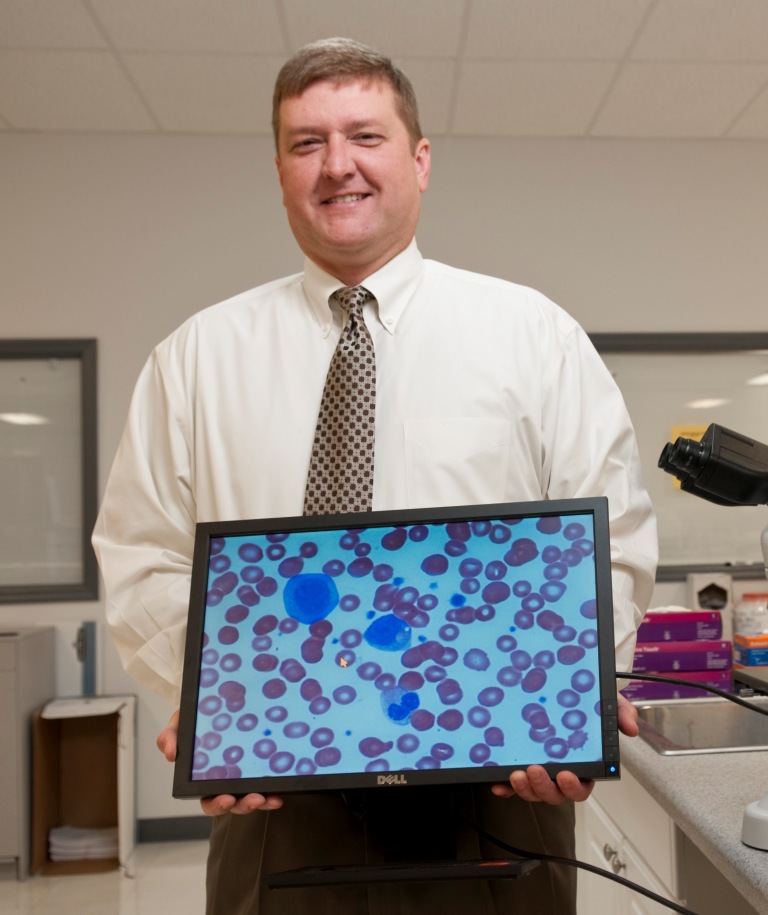For two decades, popular wisdom says “buy,’ but several entrepreneurs succeeded by building a brand new clinical lab company
Over the past 15 years, there have been few examples of pathologists and medical laboratory executives willing to start up a new clinical laboratory company from scratch. The popular wisdom says that this is a next-to-impossible task. The same popular wisdom says that buying an existing clinical laboratory company is the best way for entrepreneurs and new investors to enter the clinical lab testing marketplace.
In part, this explains why, since the mid-1990s, there are relatively few examples of a brand new lab company entering market with the goal of serving office-based physicians. It also explains why the majority of lab entrepreneurs and investors follow the business strategy of acquiring an existing laboratory company as their entré into the market. They then use this acquired lab company as the platform to grow.
Challenging the Popular Wisdom about Clinical Laboratory Acquisitions
However, during this 15-year period, a small number of clinical laboratory entrepreneurs have shown the popular wisdom to be wrong. They have boldly taken on the challenge of creating an entire lab company from the ground up—including construction of a new lab facility; staffing it with freshly-hired medical technologists; and sending sales reps out to office-based physicians in the community to wrest lab business away from established medical labs in that region.

Creating a clinical laboratory company from scratch can be an effective way to develop a profitable business. (Photo: www.southerndiag.com)
One such start-up clinical laboratory company is Southern Diagnostic Laboratories. It launched medical lab testing operations in 2003 in Birmingham, Alabama. It’s founder and CEO is Steve Boyd. Over the years, it grew steadily. In July, Southern Diagnostic Laboratories was acquired by Solstas Lab Partners. It was reported that the clinical lab company had revenues of $18.9 million in 2009.
More significantly, in recent years Southern Diagnostic Laboratories earned recognition as one of Inc. Magazine list of America’s Fastest Growing Companies for 2010. The lab was also named in the Birmingham Business Journal’s Pacesetters List of the fastest growing companies in Birmingham.
There’s a similar clinical laboratory success story unfolding in Fort Worth, Texas. Back in 1999, Professional Clinical Laboratory, Inc.—commonly known as ProLab—was a start-up independent laboratory company. Moreover, ProLab was organized to serve a portion of the medical laboratory testing market that was abandoned by the national laboratory companies more than a decade ago.
From its inception, ProLab’s strategy was to serve geriatric care facilities. ProLab’s founders had a strategy that is counter-intuitive from most other labs. They believed that, despite the difficult economics of serving this segment of the lab testing market, it could sustain a profitable business for three interesting reasons.
First, the overall market for geriatrics care was already growing at double digit rates. Second, the demographics of the nation’s aging population guarantees that these growth rates will continue for a decade or more.
Third, exactly because of this rapid growth, the number of skilled nursing facilities (SNF) and long-term care (LTC) facilities would also increase. This would mean more new clients for ProLab’s clinical lab testing services. As the number of these facilities increases, so does the demand for geriatric laboratory testing and diagnostic services.
According to ProLab’s website, the company is growing its geographic presence to meet the needs of the expanding geriatrics laboratory services market. It currently provides same-day lab results for patients in over 600 client skilled nursing and acute care facilities from thirteen locations across seven states.
Recognition for ProLab’s CEO by Ernst & Young
ProLab’s management team has been recognized for this success. In 2010, Ernst & Young in Dallas/Fort Worth recognized ProLab CEO Hillary Bell with one of its Entrepreneur of the Year Awards. Ernst & Young cited Bell’s strategy: continuously raising the company’s value proposition for patients, clients, employees and shareholders.
Judging from the results, the success stories of Southern Diagnostics Laboratories in Birmingham, ProLab in Fort Worth, and several other similar start-up clinical lab companies provide evidence that the popular wisdom may not be entirely accurate. Creating a clinical laboratory company from scratch can be an effective way to develop a profitable business.
This is a useful insight, particularly because many pathologists in local communities are recognizing that a local clinical laboratory company in their community would likely get strong support from office-based physicians in the region. However, it remains to be seen if the younger generations of pathologists will be as entrepreneurial during the 2010s as their older pathologist colleagues were in the 1970s and 1980s. Those were the decades when locally-owned and operated clinical laboratory companies sprouted up in smaller communities across the nation.
—Pamela Scherer McLeod
Related Information
Southern Diagnostic Laboratories Named to Prestigious Inc. 5000 List of Fastest-Growing Companies
Birmingham, Alabama-based testing company snapped up in deal
ProLab relocates headquarters to Euless, plans expansion
Ernst & Young Entrepreneur Of The Year® 2010 award winners in Southwest Area North announced




Hello My name Christina . I’d like to open a small molecular microbiology lab in NJ. Is there any advise you can give me?
I am interested i opening a private lab. I am a BS.Mt. for 57 years. Own a Private Phlebotomy School at the present time.
There would be lot of Challenges when you are willing to start a new Clinical Laboratory.
Articles like this would help to know how to face some of those challenges.
Hello,
I am interested in starting a small laboratory out of my home in Vermont using mostly waived testing. I am a certified Lab Tech, but need help making sure I go through all of the steps in completing a functioning lab. Is there anyone who can help me?
Thank you,
Samantha Teal